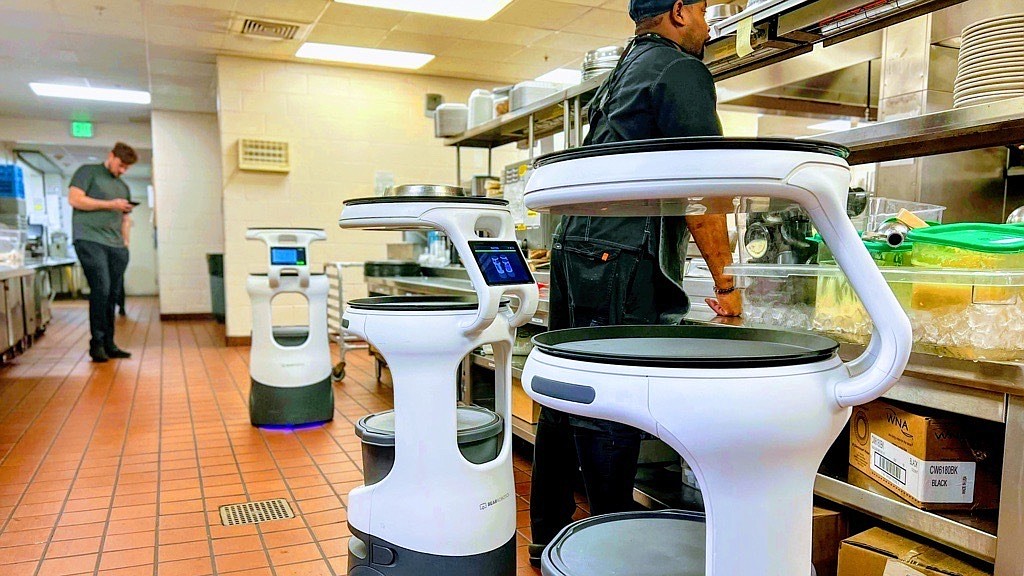When faced with a shortage of food service industry employees and a long list of open positions last year, Cypress Cove adapted. Now, the Fort Myers-based nonprofit senior living community has three robots that help with food delivery and busing tables.
The residents who live on the 60-acre campus are loving the futuristic aspect of the robots.
“I’ve had residents say it’s like living in 'The Jetsons,'” Joe Velderman, VP of innovation, tells Coffee Talk in a nod to the 1962 sitcom that takes place in 2062 and features a robot named Rosey that is the family’s maid and housekeeper. “They’re amazed by what they’re able to experience.”
The added enjoyment has come at a small price. The Servi robots made by Bear Robotics are supplied through a monthly subscription. Velderman says while each robot costs around $850 a month, the nonprofit doesn’t have to pay for employee benefits. Essentially, it’s like paying a worker $2.77 an hour. (Bear Robotics is on something of a tear in the region: Anna Maria Oyster Bar and Gecko’s Hospitality Group, in the Sarasota-Bradenton market, have been using Bear robots for several months.)
That’s not the only benefit Cypress Cove has discovered. Last year, a news story came out about Sergio’s Restaurant in Miami that was using robots to help fill the gaps of a worker shortage. The day after watching the clip, Velderman and his wife loaded up the truck and drove down for lunch.
“I was instantly sold,” he says. The first robot at Cypress Cove emerged in early summer last year through a two-month pilot. A few months after the pilot program, the nonprofit added two more.
The robots eliminate the need for servers to visit the kitchen during their shifts. Velderman says a few workers have even said their feet hurt less after a shift.
“It’s a win for our residents because there’s more face time with their servers,” he says. “And they’re being served faster because the server is within earshot.”
It’s a positive for the nonprofit because it doesn’t have to recruit for workers as much either. Plus with the extra money it’s saving by using the robots, Velderman says they’ve bumped up the starting pay to $18 an hour allowing the team to be more competitive when recruiting is necessary.
He says, “We really try to embrace technology in as many ways as we can.”






